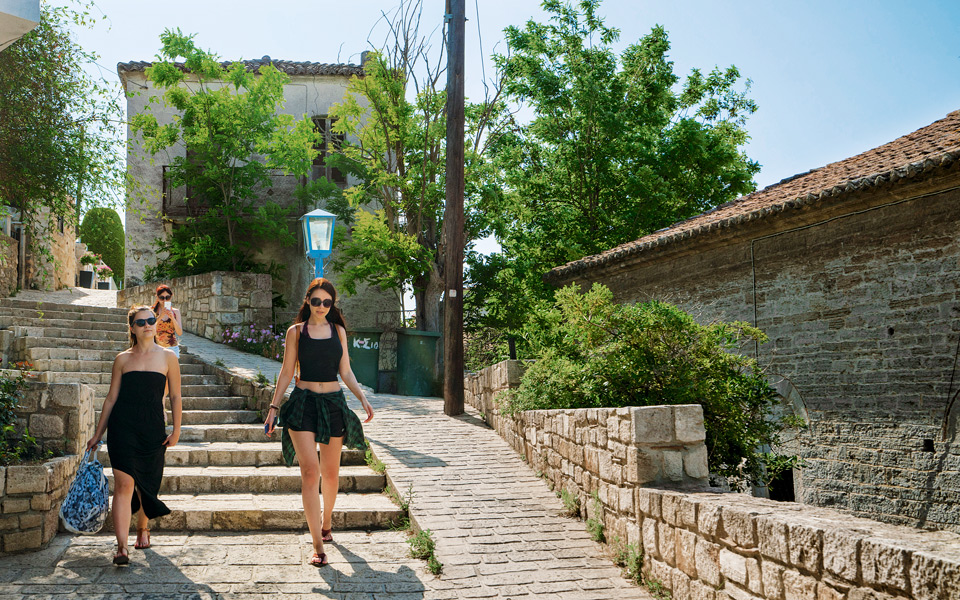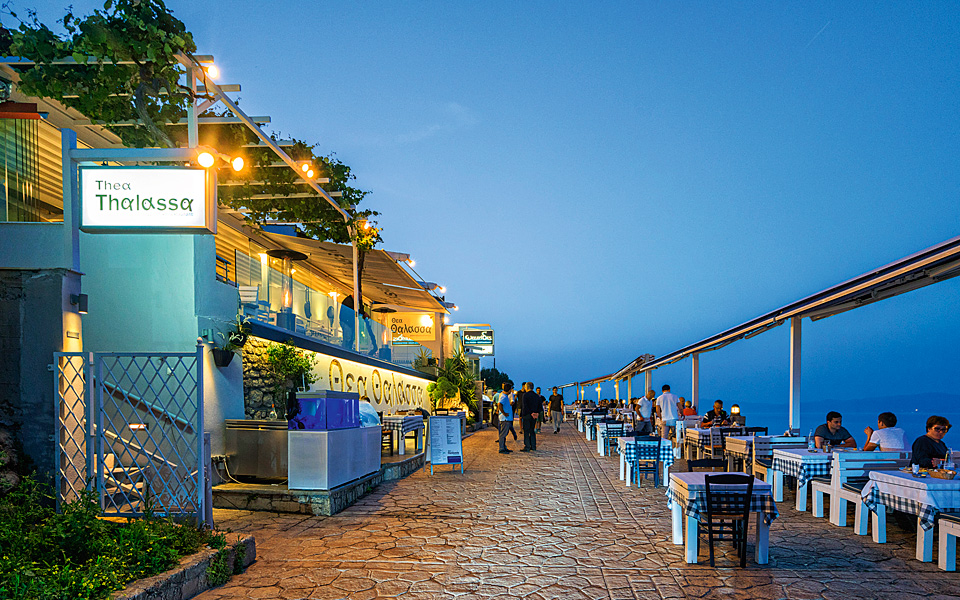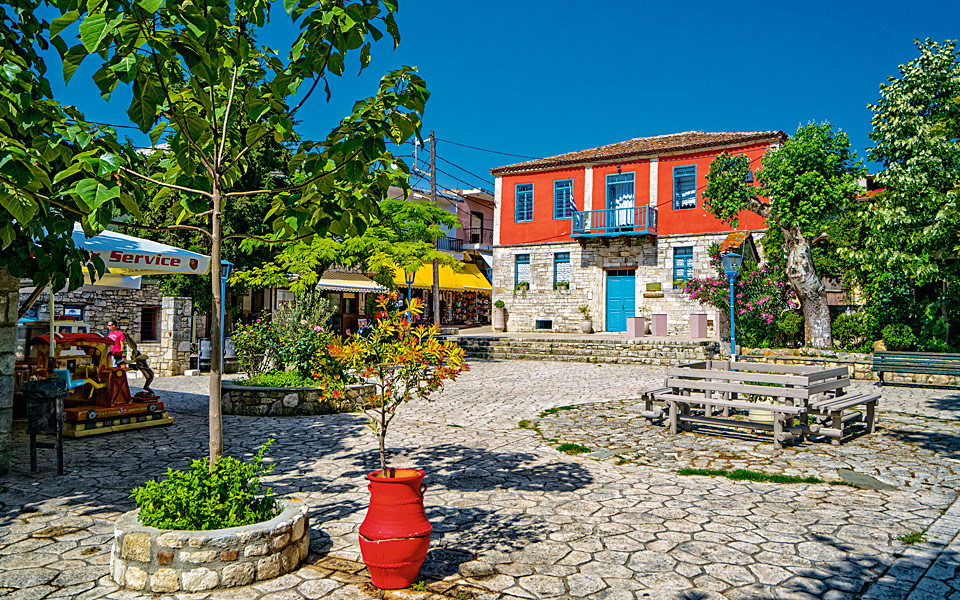Afytos is a special kind of village, a combination of a traditional mountain hamlet and an island. Built above the Toroneos Gulf in a location that has been inhabited since prehistoric times, it stands out from Kassandra’s typical tourist resorts, thanks to its traditional stone homes, its well-maintained 19th century mansions and its picturesque cobbled alleys. Its location – at a height above the sea and invisible from the main road below – has helped safeguard it from the tourism development that has engulfed so many other towns in the region, and has allowed it to acquire a loyal but more eclectic following.
Afytos has gone through many changes, triggered both by history and by serendipity. Its location and its abundance of commodities (olives, grain, honey, wine and timber) brought wealth and prosperity in archaic and classical times. However, with wealth can come danger, and Afytos was destroyed by Philip II of Macedonia in 348 BC, only to rise once more in the Roman and Byzantine eras. Its involvement in the 1821 War of Independence led at one point to its near-total abandonment, but it managed to emerge victorious yet again; from 1860 onwards, it entered a new period of growth.
“Afytos has gone through many changes, triggered both by history and by serendipity.”

© Perikles Merakos

© Perikles Merakos

© Perikles Merakos
Commercial ties with areas like Pilio and the Northern Sporades have left definite traces in its architecture, which is a successful combination of disparate elements: don’t be surprised to see a small whitewashed home with blue shutters standing next to an ochre neoclassical-inspired mansion. Where the town’s architecture truly displays its unique nature is in the building material – local stone composed of sand and shells that is used widely, not only in construction, but also by local sculptors.
“Many of us take an amateur interest in art,” says Vassilis Pavlis, former president of the community and today a sculptor and a champion of the native rock. “This is hardly surprising given the landscape, the character of the village and its ancient history. Afytos has a certain mystique, a different spirit.”
Visitors like to come to Afytos to stroll around its lovely streets, enjoy a meal or meze at its cafés and tavernas, and search its small shops for gifts and souvenirs of folk art or traditional products, such as jars of honey, soap made with olive oil, or ornate gourds – known as kratounes – once used by the townspeople to transport water.
“Where the town’s architecture truly displays its unique nature is in the building material – local stone composed of sand and shells.”












